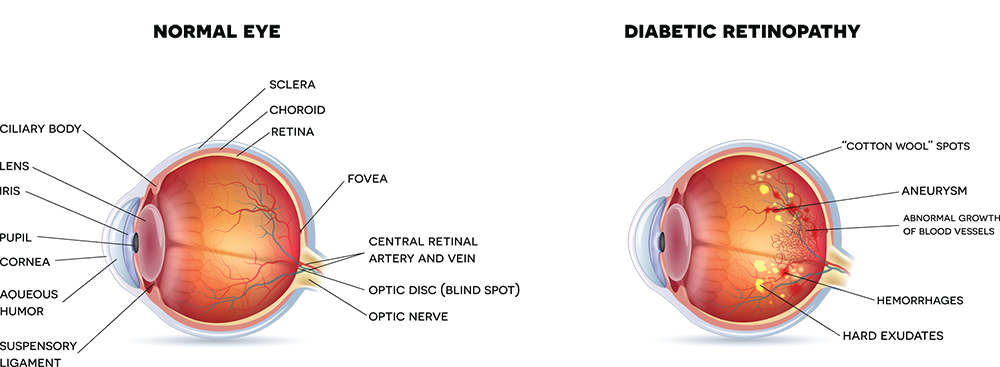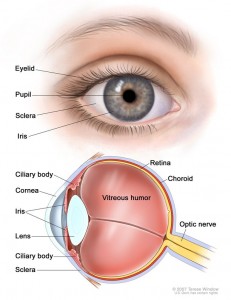Diabetes Surgery
Diabetes and Your Eyes:
Diabetes is a common disease in the United States and the most common cause of blindness in the US. Regular eye examinations are important in diabetes because diabetic eye disease and the vision loss caused by it are completely preventable.
In diabetes, high sugar levels in the blood damage blood vessels throughout the entire body. Damage to blood vessels in the kidneys can cause kidney failure requiring dialysis. Your eye also has many blood vessels in it, and diabetes can also damage those blood vessels in the retina of the eye.
Risk Factors for Diabetic Retinopathy
Diabetic retinopathy can occur in anyone who has diabetes. The longer you have had diabetes, the larger your risk for this condition, particularly if you do not carefully control your blood sugar levels. Additional risk factors may include:
- Tobacco use
- Pregnancy
- High blood pressure
- High cholesterol
With or without the presence of these additional risk factors, if you have diabetes, it is vital for your visual health that you visit us at least once a year for thorough eye examinations.

Diabetic Retinopathy Complications
Complications associated with diabetic retinopathy include:
- Retinal detachment – Abnormal blood vessels in the eye can result in the creation of scar tissue that pulls the retina away from the back of the eye
- Vitreous hemorrhage – Leaking blood vessels can bleed into the vitreous humor, filling the cavity and blocking vision
- Glaucoma – The growth of new blood vessels can interfere with the normal flow of fluid out of the eye, increasing intraocular pressure and damaging the optic nerve
All of these complications can lead to a complete loss of vision.
Due to the threat diabetic retinopathy poses to your vision, the American Diabetes Association recommends annual eye exams for people with both types of this disease. If you have repeated normal exams, our doctors may allow for longer periods of time in between visits, but this must be determined on a case by case basis. During your visits to California Retina Associates, we will discuss your visual changes, answer any questions about diabetic retinopathy that you may have, and help you determine what steps will best help guard your vision well into the future.

Treatment:
If it is caught early proliferative diabetic eye disease can be treated with laser therapy to save your vision. Once the vision is lost it is very hard to get it back.
Background and early proliferative diabetic retinopathy have no symptoms. The only way to know if you have these changes and need laser therapy to save your sight; is to visit your eye doctor regularly.
People with diabetes should have their eyes examined at least once a year to make sure they do not have early damage that threatens their vision.
